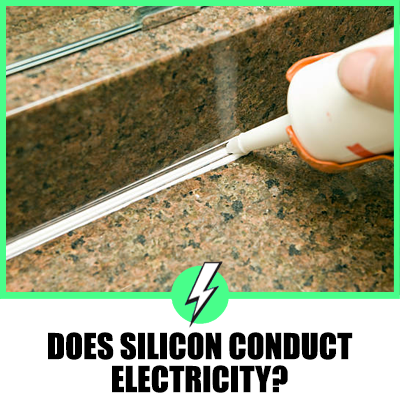Does Silicon Conduct Electricity? A Comprehensive Analysis
In the realm of electronics and technology, silicon holds a position of paramount importance.
This element, with its unique properties, has revolutionized the world of semiconductors.
But what about its relationship with electricity?
Does silicon conduct electricity?
This article aims to delve into the properties of silicon and its ability to conduct electricity, suitable for both UK and US audiences.

Contents
Is Silicon an Insulator of Electricity?
Silicon is classified as a semiconductor, which means it falls somewhere between a conductor and an insulator.
Pure silicon is closer to being an insulator than a conductor, with a resistivity of around 60,000 ohm-cm, compared with copper’s 1.7e-6 ohm-cm.
In other words, a pure silicon conductor with the same dimensions as a copper one would have a resistance of over 35 billion times more.
However, this can be changed by deliberately adding certain types of impurities called dopants.
Why is Silicon a Conductor?
Silicon becomes a conductor through a process called doping.
Two common dopants are phosphorus and boron, producing what are called n-type and p-type silicon respectively.
In solid silicon, each silicon atom forms covalent bonds with four other silicon atoms to form a lattice.
When a phosphorous atom is added to silicon, it inserts itself into the lattice but with one electron spare.
This electron is free to move around and becomes a charge carrier, making the n-type silicon conduct like a metal.
The conductivity is dependent on the density of charge carriers and therefore depends on the amount of phosphorous added.
Conversely, a boron atom has 3 outer electrons.
So when added to silicon, it inserts itself into the lattice with an incomplete bond, referred to as a hole.
This hole is positively charged and can move around by moving to other adjacent atom pairs in the lattice, acting as a positive charge carrier and making the silicon a good conductor with sufficient boron added.
How Much Electricity Does Silicon Conduct?
The amount of electricity conducted by silicon depends on the amount of doping.
The more dopants added, the more charge carriers are available, and the better the silicon can conduct electricity.
However, it’s important to note that even with doping, silicon will not conduct electricity as well as metals like copper.
Does Silicon Conduct Electricity in Water?
Silicon’s ability to conduct electricity does not change in water.
However, water can affect the electronic devices that use silicon, as water can cause short circuits and damage the device.
Insights from Online Discussions
Online discussions reveal a range of perspectives and further information on this topic.
For instance, a Reddit discussion explains how temperature can affect the conductivity of silicon.
As the temperature increases, more electrons can jump across the band gap into the conduction band, where they are free to move about as part of an electric current.
This means that the higher the temperature, the more the electron distribution gets smeared out to higher energy states and into the conduction band, increasing silicon’s conductivity.
Silicon in the Semiconductor Industry
Silicon’s unique properties make it the material of choice in the semiconductor industry.
Its ability to conduct electricity when doped, coupled with its abundance and the ease with which it can be processed, has made it the backbone of the electronics industry.
From microchips in computers to solar panels, silicon’s role in the modern world cannot be overstated.
Silicon vs. Other Semiconductors
While silicon is the most commonly used material in the semiconductor industry, it’s not the only one.
Other materials like germanium, gallium arsenide, and silicon carbide are also used, each with their own unique properties.
However, silicon’s balance of cost, availability, and performance has kept it at the forefront of the industry.
The Future of Silicon
As technology continues to advance, the demand for smaller, faster, and more efficient devices grows.
This has led to the exploration of new materials and technologies, such as graphene and quantum computing.
However, silicon, with its proven track record and ongoing research into silicon-based technologies like silicon photonics, is likely to remain a key player in the industry for the foreseeable future.
Conclusion
In conclusion, while silicon is not a natural conductor of electricity, through the process of doping, it can be made to conduct electricity.
This property is what makes silicon so valuable in the world of electronics and technology.
As we continue to explore and understand the properties of silicon and other semiconductors, we can look forward to new and exciting advancements in the field of electronics.





